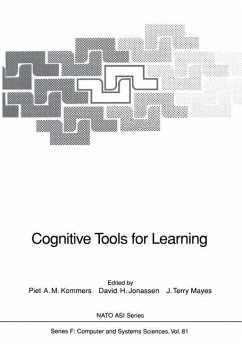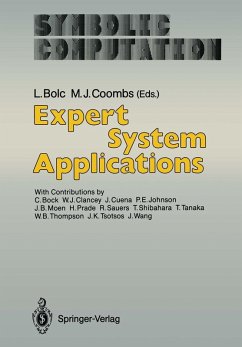
Second Generation Expert Systems
Versandkostenfrei!
Versandfertig in 6-10 Tagen
77,99 €
inkl. MwSt.

PAYBACK Punkte
39 °P sammeln!
Second Generation Expert Systems have been a very activefield of research during the last years. Much work has beencarried out to overcome drawbacks of first generation expertsystems. This book presents an overview and newcontributions from people who have played a major role inthis evolution. It is divided in several sections that coverthe main topics of the subject:- Combining Multiple Reasoning Paradigms- Knowledge Level Modelling- Knowledge Acquisition in Second Generation Expert Systems- Explanation of Reasoning- Architectures for Second Generation Expert Systems.This book can serve as a ...
Second Generation Expert Systems have been a very activefield of research during the last years. Much work has beencarried out to overcome drawbacks of first generation expertsystems. This book presents an overview and newcontributions from people who have played a major role inthis evolution. It is divided in several sections that coverthe main topics of the subject:- Combining Multiple Reasoning Paradigms- Knowledge Level Modelling- Knowledge Acquisition in Second Generation Expert Systems- Explanation of Reasoning- Architectures for Second Generation Expert Systems.This book can serve as a reference book for researchers andstudents and will also be an invaluable help forpractitioners involved in KBS developments.














